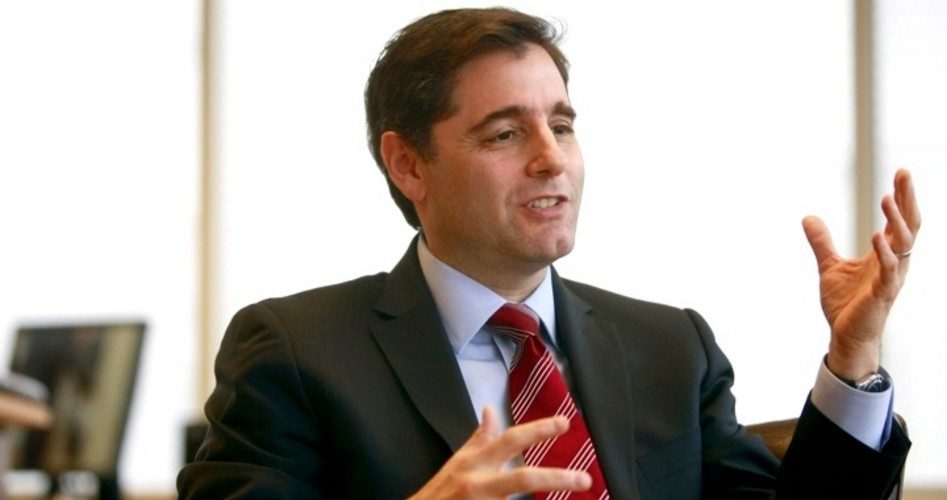
Nullifying his former position that Internet providers should have the freedom to pursue new and innovative business models, Federal Communications Commission (FCC) Chairman Julius Genachowski advocated his agency’s role of regulating broadband Internet services, asserting that the FCC must act like a “cop on the beat.”
“We need to protect and promote competition,” Genachowski said Tuesday in a speech to media company Vox Communications. “We know from decades of experience that when it comes to competition in the communications sector, the FCC needs to be a cop on the beat.”
Despite its seemingly anticlimactic sentiment, the FCC chairman professed that the federal government must institute regulations to squelch practices that may discourage competition. “Protecting competition sometimes means putting rules in place to prevent anti-competitive practices — rules we adopted last year by majority vote to ensure broadband data roaming is one example,” he affirmed.
In defending the agency’s regulatory efforts, Genachowski cited dubious “net neutrality” rules — a principle that bolsters government regulation of Internet service providers — as a practice the FCC utilizes to suppress “anti-competitive” behavior. In December 2010, the agency approved a series of rules to bar communication providers from hindering access to certain competitors. The initiative comprised three basic parts:
- Transparency. While “reasonable network management” is allowed, it must be disclosed to consumers. That would rule out actions like Comcast’s throttling of BitTorrent traffic, which was done secretly.
- No blocking of lawful content will be allowed. Pretty straightforward-broadband providers won’t be able to block any websites except those that have been shut down under court order or similar authority. This rule applies to mobile providers a bit differently, because while they also can’t block websites, or any apps relating to video or telephony services, they will be allowed to block some apps. This flexibility is needed because some network providers may need to block apps for technical reasons; for example, an app that works great on a 4G network might underperform or even be harmful on another type of network.
- No “unreasonable” discrimination. Requires broadband providers handling traffic on their networks to not unreasonably discriminate or “pick winners and losers on behalf of consumers.” (Like Level 3 claims Comcast (NSDQ: CMCSA) wants to do.) This doesn’t apply to mobile.
Proponents of the regulations, including the Obama administration and mostly Democratic congressional members, contend that net neutrality rules are critical to prevent communication service providers from discriminating against websites by capping bandwidth usage or charging unreasonably high prices to specific websites. Consequently, Genachowski said he was “proud” that the FCC rules have emboldened a “virtuous cycle” of demand and innovation.
“Sometimes government has to act to preserve platforms for innovation,” Genachowski noted in his speech. “[T]hat’s what the open internet/net neutrality debate was all about — doing it in a smart, market-oriented way that recognizes the realities of the marketplace, the fact that we really want an open platform for innovators and we also really want robust, fast networks that require capital investment. It drives you to policy solutions that recognize the importance of both.”
However, opponents of the regulations argue that the FCC is overriding the constitutional rights of service providers, as they compel speech by impeding on companies’ rights to operate their businesses as they see fit. In turn, the federal government is forcing providers to allow content they might find undesirable across their networks.
Moreover, critics also underscore the fact that disputes between companies and Internet providers are sparse, adding that there has never been an instance of a provider deliberately limiting bandwidth or shutting an Internet-based business out of the market. The only bandwidth feud ever to have materialized — between Verizon and a peer-to-peer music-sharing website — was resolved without the need for government intervention.
So despite the unconstitutionality of the FCC’s plea for Internet regulation, its “anti-discriminatory” efforts are in vain, because companies are not interested in driving away customers. In a recent article for Daily World, Phil Kerpen explains why such intrusive regulations are so damaging to the Internet-based market:
In truth, “net neutrality” was and is all about prohibiting innovation in network management and in broadband business models, advancing the interests of big content companies like Google and IAC/InterActiveCorp — Chairman Genachowski’s former longtime employer — at the expense of broadband providers and consumers.
With explosive growth in online video driving bandwidth demand, network management is an increasingly critical issue. If networks can’t be managed effectively, then a tiny number of people — typically people who download massive quantities of high-definition video or heavy users of file-sharing services — can degrade network performance for many other consumers.
The market-based solution is for broadband providers to work with content firms to offer additional usage on commercial terms, Kerpen continues. Accordingly, a portion of the costs of expensive broadband networks would be financed by advertisers and content providers, lifting the burden off individual consumers. This is a market-based solution that can easily be achieved without government interference.
All in all, the Internet marketplace is the poster child for deregulatory success. Mr. Genachowski believes government regulation would serve consumers better than productive competition, citing his concern about “the psychology of abundance.” However, as Kerpen notes in his article, “It’s hard to think of something more abundant than broadband Internet. So, the only ‘psychology of abundance’ I’m concerned about is an unneeded abundance of regulation.”
Photo: In this file photo made March 12, 2010, FCC Chairman Julius Genachowski is interviewed at his office in Washington: AP Images



